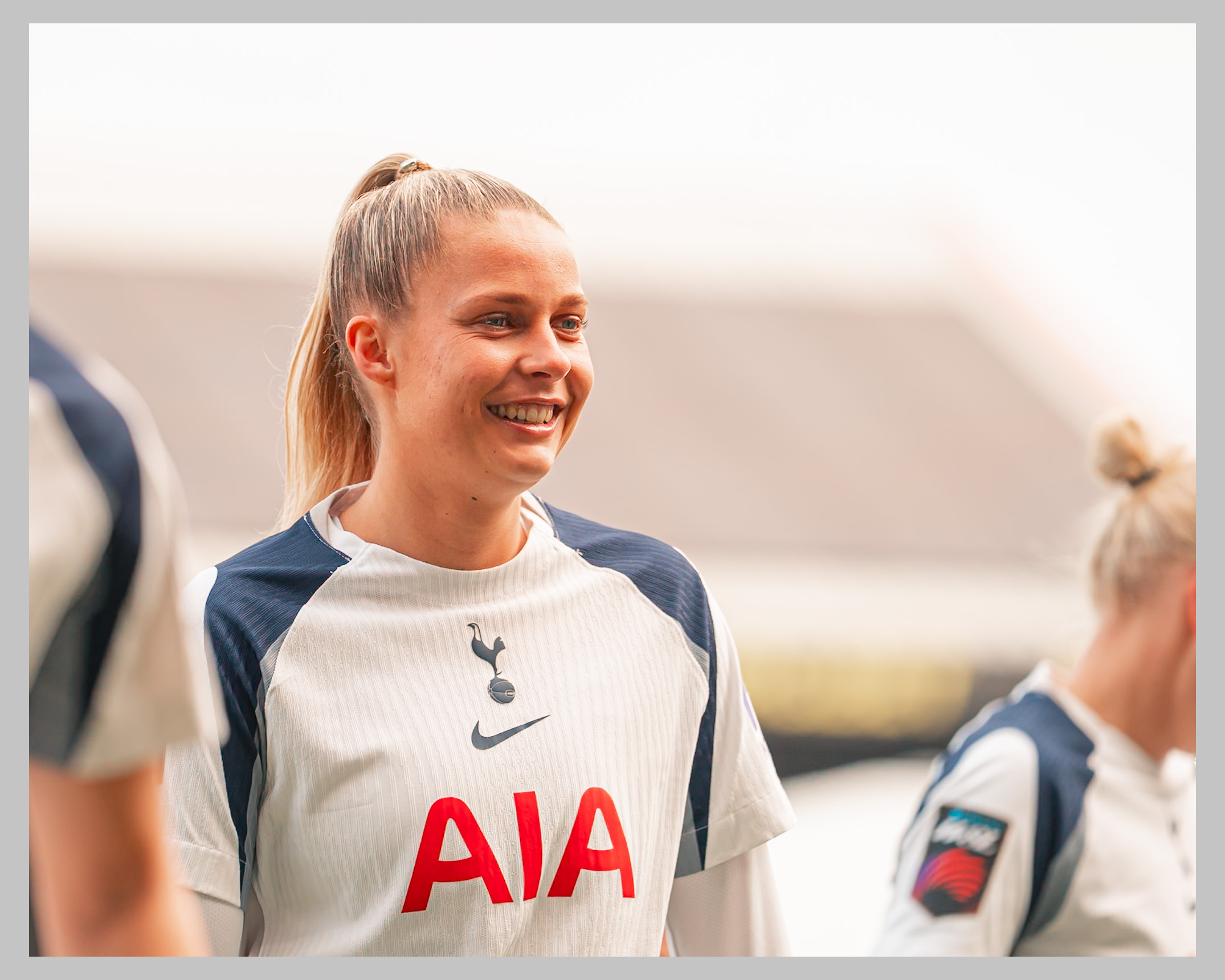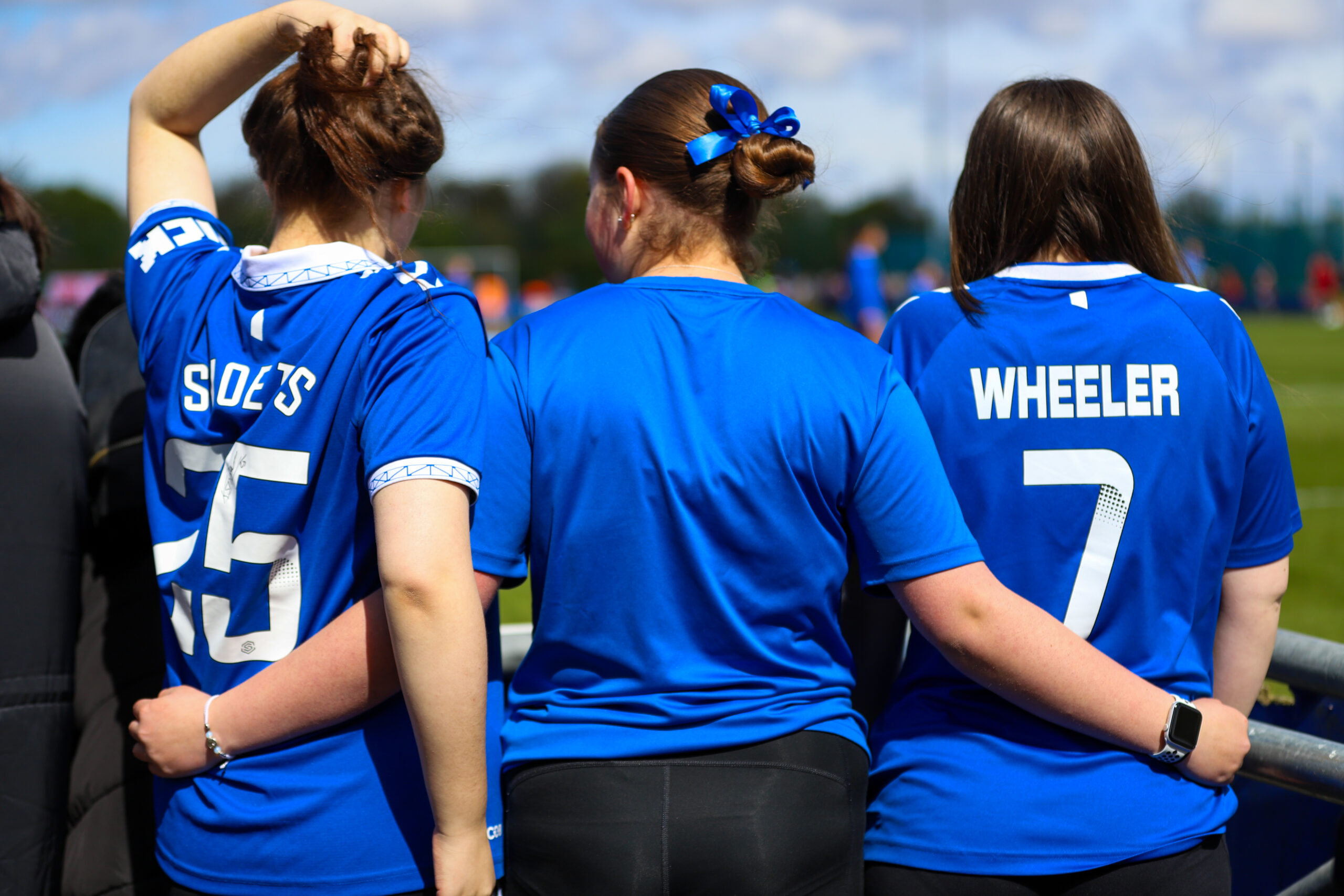As six members of Beyond the Pitch entered The Place Theatre in Bedford to experience a powerful production delivered by six exceptionally talented performers – two of whom had seen the performance before – we could not have anticipated the emotional impact it would have. What unfolded was a heartfelt reminder that women’s football doesn’t just belong; it’s absolutely monumental.
The story follows Chiltern Valley Ladies, Bedfordshire’s own, who under the guidance of the inspirational Harry Batt, became the first ever England Women’s team to play in a World Cup, in 1971 in Mexico.
Back in 1971, the world looked a little different. Rod Stewart, Neil Diamond (fitting, really), and George Harrison were topping the charts. Diamonds Are Forever hit the big screen as just the seventh James Bond film. And in the world of football, Arsenal clinched the FA Cup while Chelsea celebrated lifting the European Cup Winners’ Cup.
Some things, sadly, were not so different, as in a little corner of Bedfordshire a team of female footballers were facing bigotry and blatant sexism on a daily basis, all for playing football.
Under the guidance and sheer determination of Harry Batt, the girls made their way to Mexico, where they played in front of a staggering 100,000 fans at the iconic Azteca Stadium. They should have returned home as heroes, trailblazers who broke through the barriers that had held so many back before them.
Sadly, they were greeted by minimal coverage, and shunned for playing football, broken up by an indefinite ban that affected Batt too, pulling apart arguably, the most inspirational group of footballers in English history.
Written by Nicole Lockwood-West, niece of original Lost Lioness Christine Lockwood, the play tells the story in comedic and equally emotional fashion, utilising the small, round and compact layout of the theatre to absolute perfection.
In front of a sold-out audience for the fifth time in as many shows, and with two members of the original ’71 squad in attendance, the cast delivered the story flawlessly. Amie Butler, Lizzie Coles, Mhairi Boyle, Charlotte Brown, Molly Walker, and Stanley Eldridge reunited once again, just as they did during last year’s London run, to bring this remarkable story to life.
You’re instantly drawn in by the pitch, which doubles as the stage, about half the size of a typical six-a-side half. Lined with advertising boards featuring names of local businesses like Bedfordshire-based FootballHer and the globally recognised Foudy’s, the setup reflects the heart behind the production. Both organisations have contributed equipment, time, and passion to help the play thrive.
While the story is undoubtedly emotional, the comedic moments land just as powerfully. A standout example was the cast’s slow-motion antics as one member stepped forward to deliver a monologue, an effect that had the audience both captivated and chuckling. Of course, not everything went exactly to plan. Amie Butler, who played Leah Caleb, revealed afterwards that she accidentally flubbed a keepy-up early in the show, much to our surprise, as we’d all assumed it was part of the act!
From the opening scene, the story takes us through the team’s remarkable journey to the 1971 World Cup, including the unforgettable moment when Trudy McCaffrey loses a finger after getting it caught in the net. It’s a jaw-dropping bit of history, brought to life brilliantly (and with just the right touch of dark humour) by Charlotte Brown.
The use of monologues, particularly what football means to each of the characters is particularly poignant, with one being superbly sewn into the scene where Carol Wilson was named England Captain. The fourth wall doesn’t stay up for long in this show – audience members are high-fived during goal celebrations and even called upon to throw objects onto the stage, recreating the electric atmosphere of the Mexican crowds who warmly welcomed the Lionesses back in ’71.
From the team’s qualification journey in Sicily to the emotional challenges of players being held back by parents, the character of Harry Batt rides a rollercoaster of emotions – lifting the team after a crushing defeat, handing the captain’s armband to Carol, or cracking a joke about the flight to Mexico. Stanley Eldridge portrayed Batt with real finesse and heart. When Danny Milwain, the producer, asked Eldridge what it meant to portray a character like Harry, Eldridge responded:
“Playing Harry was like playing a true English hero. Quiet, determined yet full of life. Just like in 1936, as Fascists stormed Spanish democracy, he saw an injustice and didn’t hesitate to rectify it. I’d like to think I’m cut from the same cloth, but the truth is we’re in desperate need of more Harry Batts in the modern world.”
“Watching the Lionesses win the Euros was always in my mind, imagining how happy the prospect of that reality would make him. He saw that before any of us, and strove to make it happen. An honour to play a visionary and maverick like that.”
Now, if that doesn’t show you just how much love this cast has for the show, I honestly don’t know what will. The play closes with what, for me, was one of the most powerful and emotionally resonant pieces of theatre I’ve ever experienced.
When the audience learns of Batt’s indefinite ban, a hush falls over the theatre – a moment that sends a real chill through the room. Then, one by one, the girls line up behind him, arms around each other, quietly sharing how, after the tournament, they never saw one another again. Well…not until this story was finally brought back into the light.
You’ll Never Walk Alone plays through the speakers as the girls stand there, absorbing the moment. Then, Jonathan Pearce’s iconic commentary of Chloe Kelly’s winning goal in the European Championship final overlays the scene. By that point, there wasn’t a dry eye in the house.
After the play, as drinks flowed and conversations buzzed, each member of the cast took a moment to speak with us about just how much they cherished being part of the production and telling the story of such an inspirational team.
The Lost Lionesses is a captivating story that unquestionably deserves to be heard. We wholeheartedly urge the Arts Council to provide Danny, Nicole, and their incredible team with the support they need to share this powerful narrative with audiences across the country. This is a truly remarkable tale of an extraordinary team, brought to life by an equally exceptional cast. It’s essential for people to see just how deeply this story resonates with everyone involved. I would give the play a perfect five out of five stars, and I’m certain I’m not alone in that sentiment. The seamless blend of comedy, emotion, and the cast’s undeniable passion was nothing short of perfection. Truly remarkable in every way.



